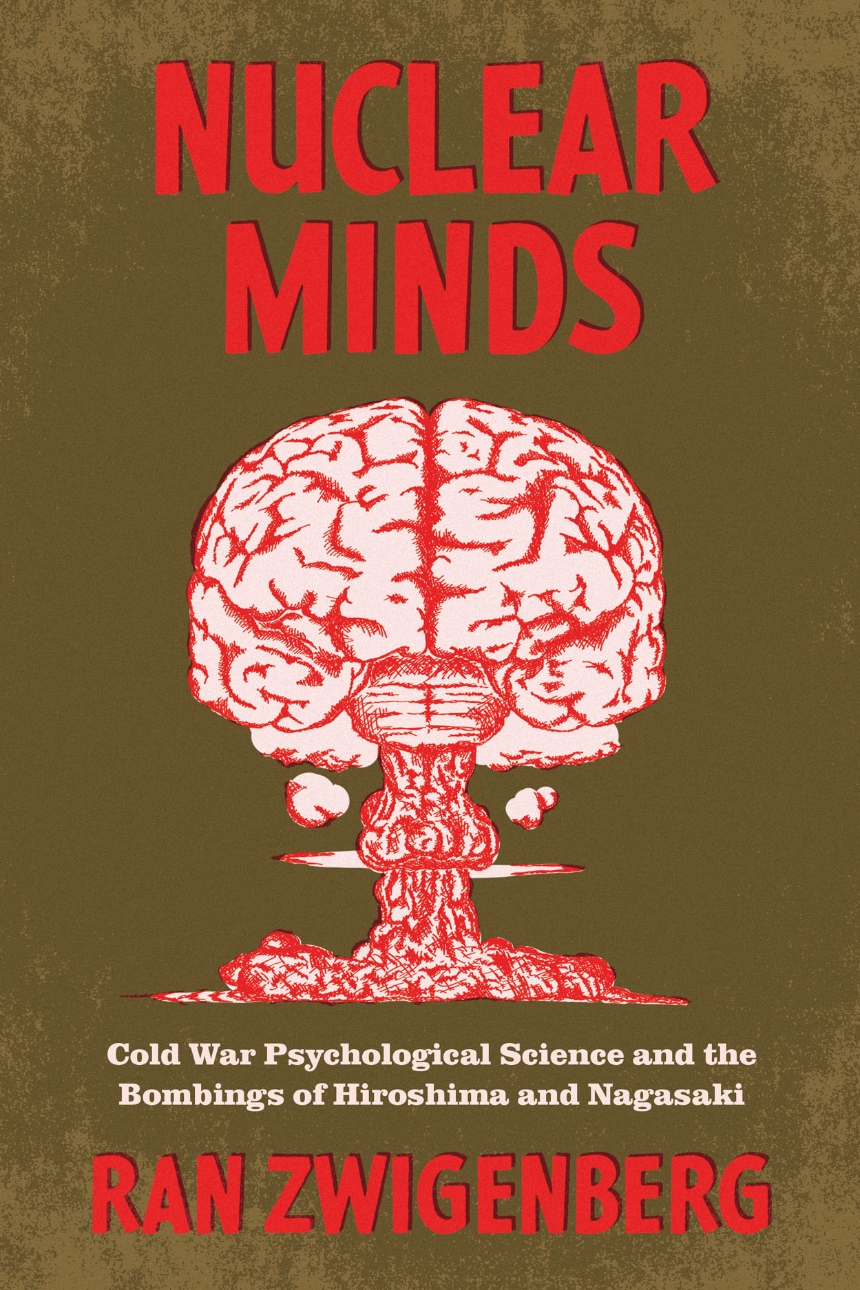Nuclear Minds
Cold War Psychological Science and the Bombings of Hiroshima and Nagasaki
9780226826769
9780226825915
9780226826752
Nuclear Minds
Cold War Psychological Science and the Bombings of Hiroshima and Nagasaki
How researchers understood the atomic bomb’s effects on the human psyche before the recognition of Post-Traumatic Stress Disorder.
In 1945, researchers on a mission to Hiroshima with the United States Strategic Bombing Survey canvassed survivors of the nuclear attack. This marked the beginning of global efforts—by psychiatrists, psychologists, and other social scientists—to tackle the complex ways in which human minds were affected by the advent of the nuclear age. A trans-Pacific research network emerged that produced massive amounts of data about the dropping of the bomb and subsequent nuclear tests in and around the Pacific rim.
Ran Zwigenberg traces these efforts and the ways they were interpreted differently across communities of researchers and victims. He explores how the bomb’s psychological impact on survivors was understood before we had the concept of post-traumatic stress disorder. In fact, psychological and psychiatric research on Hiroshima and Nagasaki rarely referred to trauma or similar categories. Instead, institutional and political constraints—most notably the psychological sciences’ entanglement with Cold War science—led researchers to concentrate on short-term damage and somatic reactions or even, in some cases, on denial of victims’ suffering. As a result, very few doctors tried to ameliorate suffering.
But, Zwigenberg argues, it was not only that doctors “failed” to issue the right diagnosis; the victims’ experiences also did not necessarily conform to our contemporary expectations. As he shows, the category of trauma should not be used uncritically in a non-Western context. Consequently, this book sets out, first, to understand the historical, cultural, and scientific constraints in which researchers and victims were acting and, second, to explore how suffering was understood in different cultural contexts before PTSD was a category of analysis.
In 1945, researchers on a mission to Hiroshima with the United States Strategic Bombing Survey canvassed survivors of the nuclear attack. This marked the beginning of global efforts—by psychiatrists, psychologists, and other social scientists—to tackle the complex ways in which human minds were affected by the advent of the nuclear age. A trans-Pacific research network emerged that produced massive amounts of data about the dropping of the bomb and subsequent nuclear tests in and around the Pacific rim.
Ran Zwigenberg traces these efforts and the ways they were interpreted differently across communities of researchers and victims. He explores how the bomb’s psychological impact on survivors was understood before we had the concept of post-traumatic stress disorder. In fact, psychological and psychiatric research on Hiroshima and Nagasaki rarely referred to trauma or similar categories. Instead, institutional and political constraints—most notably the psychological sciences’ entanglement with Cold War science—led researchers to concentrate on short-term damage and somatic reactions or even, in some cases, on denial of victims’ suffering. As a result, very few doctors tried to ameliorate suffering.
But, Zwigenberg argues, it was not only that doctors “failed” to issue the right diagnosis; the victims’ experiences also did not necessarily conform to our contemporary expectations. As he shows, the category of trauma should not be used uncritically in a non-Western context. Consequently, this book sets out, first, to understand the historical, cultural, and scientific constraints in which researchers and victims were acting and, second, to explore how suffering was understood in different cultural contexts before PTSD was a category of analysis.
An open access version of this book is available.
304 pages | 10 halftones | 6 x 9 | © 2023
Asian Studies: East Asia
History: Asian History, History of Technology
Reviews
Table of Contents
Note on Language
Introduction
Part 1. Bombing Minds
Chapter 1. American Psychological Sciences and the Road to Hiroshima and Nagasaki
Chapter 2. Bombing “the Japanese Mind”: Alexander Leighton’s Hiroshima
Chapter 3. Healing a Sick World: The Nuclear Age on the Analyst’s Couch
Chapter 4. Nuclear Trauma and Panic in the United States
Part 2. Researching Minds, Healing Minds
Chapter 5. Y. Scott Matsumoto, the ABCC, and A-Bomb Social Work
Chapter 6. Konuma Masuho and the Psychiatry of the Bomb
Chapter 7. Kubo Yoshitoshi and the Psychology of Peace
Chapter 8. Social Workers, Nuclear Sociology, and the Road to PTSD
Conclusion
Acknowledgments
Notes
Index
Introduction
Part 1. Bombing Minds
Chapter 1. American Psychological Sciences and the Road to Hiroshima and Nagasaki
Chapter 2. Bombing “the Japanese Mind”: Alexander Leighton’s Hiroshima
Chapter 3. Healing a Sick World: The Nuclear Age on the Analyst’s Couch
Chapter 4. Nuclear Trauma and Panic in the United States
Part 2. Researching Minds, Healing Minds
Chapter 5. Y. Scott Matsumoto, the ABCC, and A-Bomb Social Work
Chapter 6. Konuma Masuho and the Psychiatry of the Bomb
Chapter 7. Kubo Yoshitoshi and the Psychology of Peace
Chapter 8. Social Workers, Nuclear Sociology, and the Road to PTSD
Conclusion
Acknowledgments
Notes
Index
Awards
International Society for the History of Behavioral and Social Sciences: Cheiron Book Prize
Finalist
